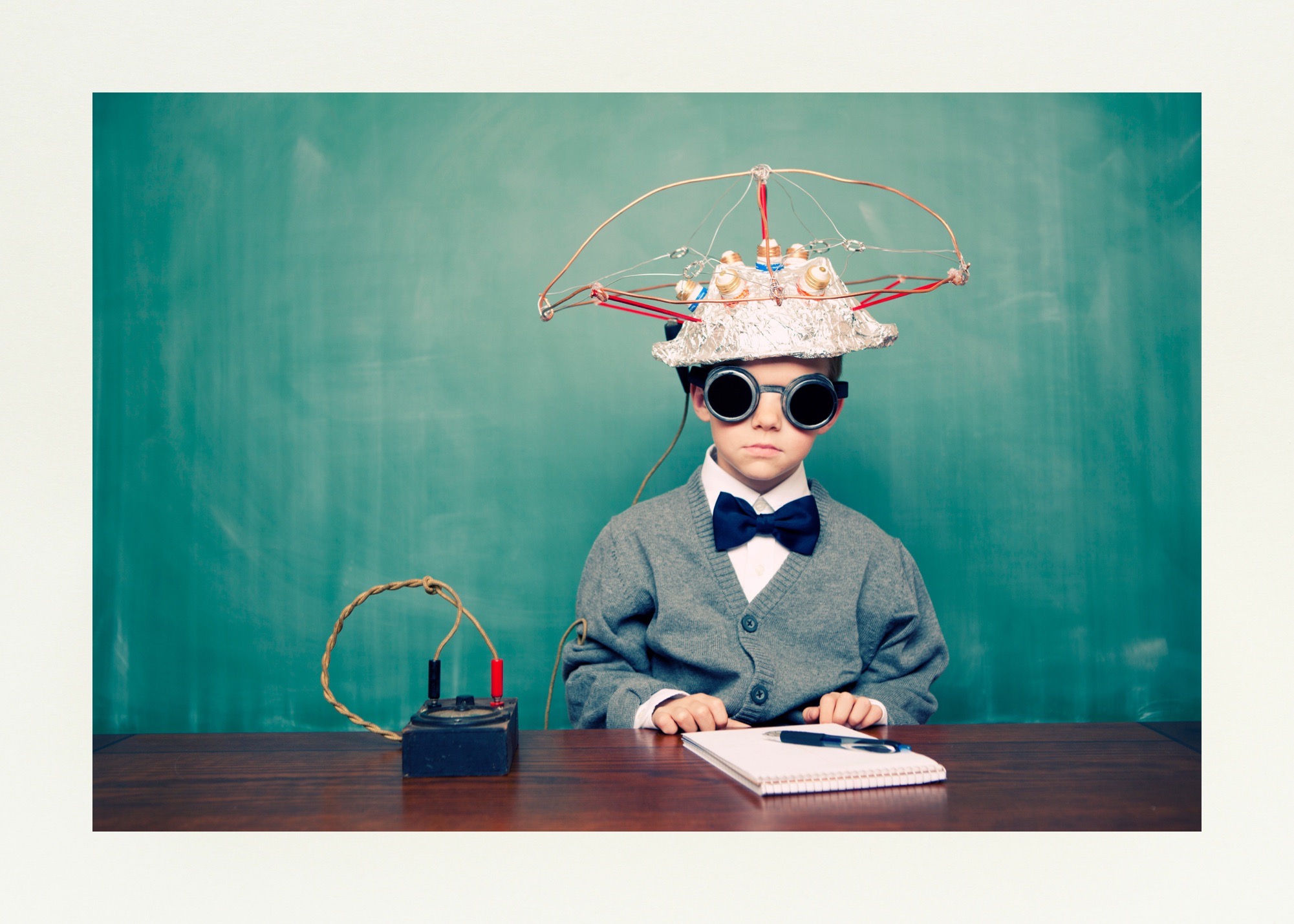
Vol. 18: How to Train Your Monkey Brain
An exciting part of our brains is key to millions of years of human survival. It was there as we evolved into modern humans around two hundred thousand years ago. Always looking out for danger, it was still there ten thousand years ago when we settled and began planting crops and keeping animals. This part of the brain has one job: to keep us safe, twenty-four-seven, and it's still doing it today virtually unchanged.
But, while our brains haven't changed much since the beginning of humanity, our world has transformed beyond recognition.
We had to process relatively little information way back when, but now, this primitive part of the brain must deal with thousands of bits of data every day—always on the lookout for danger and ready to protect you from harm.
Unfortunately, if we're not careful, this part of the brain can become confused, creating issues such as anxiety, anger, depression, or destructive habits like an addiction.
Now, as our brains are the most complex structure in the known universe, let's keep it simple and describe your brain as if it has two characters living inside of it. One is sensible, positive, organized, and considerate—we'll call this your human mind.
The other one we've been talking about, who lives in the primitive part of your brain, tends to be judgemental, negative, emotional, and selfish. Zen Buddhists, amongst others, call this the monkey mind.

The human mind might want to eat healthy foods, work, and get to bed early. But, the monkey mind might convince you to eat junk food and stay up late binging Netflix.
The monkey always wants control of things and can be very persuasive. But it's not your enemy; it can be your greatest ally.
So, let's see it in action, shall we?
Neural Pathways & Perceived Attacks
The central part of this emotional side of the brain is called the amygdala, which controls the fight or flight response. Then, there's the hippocampus, where the templates live. These default settings, if you will, manage our automatic reactions and work similarly to computer programs.
It's easy to create templates that the monkey believes are helping, but your rational mind knows it's quite the opposite.
Take smoking, for example. The rational human mind knows smoking is about as sensible as juggling hand grenades. But, your monkey mind may still encourage you to light one up anyway.
Next, we have the hypothalamus, which regulates the chemical responses in the brain and body. Together, these three brain amigos make up the limbic system.
Imagine going about your day using your human mind; a giant polar bear jumps in front of you. Your monkey mind would spot the potential threat before the human mind and take control instantly, not asking for permission.
Then, a template in the hippocampus becomes aware that the polar bear is a threat and tells the amygdala to trigger the flight or fight response. Suddenly, the hypothalamus wakes up and administers a massive shot of adrenaline to help you either fight the bear or run from it. And thanks to your fast-acting monkey, you escape, and you're safe.

Now, if the situation I've described happened in real life, you'd be pleased that your monkey mind is faster and more robust than your human mind. But, would you then forget about the polar bear altogether? Or would you keep thinking about it, dwelling on the threat? Would you think about how brilliant your limbic system is for protecting you, or would you instead be stuck contemplating what-ifs?
What if I'd tripped?
What if it caught me?
What if I go back and it's still there?
What if it followed me home?
Your monkey mind is obsessive. It wants to keep going over the same story, and since it's programmed to always look at the worst-case scenario to keep you safe, it imagines what could happen.
When you saw the polar bear, your mind didn't say, "Oh, what a cute polar bear. Isn't it nice and fluffy?" No, it said, "Run before you get eaten!"
Also, notice how you feel when replaying the event in your head. For example, do you feel relaxed when you think about the impending doom of being eaten alive by a giant snow bear? No! Because anytime we replay events in our mind, even though we're just viscerally remembering an experience, the monkey mind reacts as if the circumstances are happening in real-time, which triggers the amygdala and pumps you full of stress hormones all over again.
Remember: the mind cannot distinguish between real life and imagination.
And if you're worried about an event that won't take place for weeks, or even months from now, your monkey mind may not wait until the big day to go into panic mode. But, again, this is because your anxious thoughts are that powerful.
My Little Bucket O’ Stress
So, we have a brain that encourages us to think constantly about past and future events, that's programmed to look at the worst-case scenario, that reacts to thoughts as if they were actual events, and may respond to a post on social media as if it were a polar bear attack.
So, you can easily see how we can quickly begin to feel anxious, angry, or depressed if our monkey mind is in charge of running the show.
Now, let's imagine you have a bucket inside of you that we'll call a "stress bucket." When we think negatively and worry, stress hormones begin dripping into our buckets—the more we do it, the more the bucket fills!
Of course, the more we behave this way, the worse we feel. Perhaps you've noticed that anxiety and stress can feel progressively worse. The reason for this is the monkey mind. Our monkey mind reacts when we focus on the problem rather than the solution. Always.

But then, say, we survive the problem (as we typically do) without directly solving it. We get through it. As a result, the issue goes away without our reasonable effort, and the monkey notices.
He says, "Hey, I've done an excellent job! We survived!" which reinforces the unhelpful template, creating fertile ground for developing destructive habits, addictions, and coping strategies.
For example, you may feel stressed and reach for food, a cigarette, or a glass of wine. Then, you survive the stressful episode. The monkey wins, and that banshee part of your brain encourages you to do it more and more.
The monkey tends to screw things up when left in charge; however, it's not our adversary. At managing real-life threats, the monkey is the MVP. But, it's also more robust and faster than the rational human mind. So, if you try and fight it, you will lose.
Instead, let's manage it effectively.
Here's how I'm doing it:
#1: Minimize Multitasking
We are hardwired to pay close attention to potential environmental threats, which historically have been determined by cues such as noise, movement, and changes in lighting. Today, our homes and offices often trigger sensitivity with these same cues, and although we work hard to stay focused on the task, our brains fatigue, and our attention starts to wander.
What's more, the content of noise that appears to be in the background can make its way into our awareness, even shifting our perception of our day. For example, one study showed that people who watched just 3 minutes of negative news were 27% more likely to rate their day as being harmful.
Tame the monkey mind by turning off unnecessary noise and stimulation whenever possible.
#2: Move Your Body
When we worry, our brain wants to help us mobilize to take control of the situation. Instead of fighting or running away, however, we tend to sit and wallow in our worries, making us feel stuck, overwhelmed, and out of control.
One of the quickest ways to tame the monkey mind and reduce anxiety is to get physically active. Moving our bodies allows us to utilize stress hormones more positively and productively and triggers the release of endorphins that help us feel good and boost our sense of accomplishment.
Even when we can't solve the problem, taking some personal action like a short burst of exercise or a quick walk can tame the monkey mind, reduce stress, and help us think more clearly.

#3: Listen to Music
It seems that music has a way of bypassing the human part of the brain to nudge the monkey mind in a new and improved direction.
You can use music to trigger excitement and passion for harnessing energy towards performance goals or music to quiet, calm, and soothe the nervous system by providing a slower, softer, more rhythmic tone to balance brainwaves.
Set aside time to create playlists to quiet your monkey mind so that you'll have them close by when you need to calm down. Like any other mental muscle, the more you use the cue of specific songs to recharge, the quicker you'll shift to this state over time.
At the bottom of this page, I've provided a link to a perfect playlist to get you started.
#4: Meditate
Although it's challenging at first, slowing down our breathing and quieting the mind is one of the best ways to train the brain to be still. When the monkey mind is active, it can feel impossible to calm it down. You can reduce the chaos by first focusing on how it feels to breathe in and out. Next, keep your attention on your body's physical sensations as your chest expands and contracts. Then, shift your focus to something or someone you feel grateful for.
If your mind starts to wander, notice it and bring it back to your object of gratitude. Like training muscles in the gym and resisting the pull of gravity, see that it's a challenge and continue to bring your awareness back over and over again to gratitude, strengthening your ability to stay in the present moment.
#5: Tickle Your Funny Bone
If you have a kid or four at home, and they're anything like my little boy, then there's enough dry humor and hand-me-down one-liners to keep a steady grin on your face. But, finding something funny is a quick way to shift a busy brain into a more relaxed and creative state.
One of my favorite words in the English language is mirth. Mirth is the emotional experience of humor, the feeling you get when you notice that something is funny. It could be curious, peculiar, or ironic. And it doesn't have to make you laugh out loud, although you'll benefit even more if you do.
Humor research has shown that finding something funny decreases stress hormones, improves immune function, strengthens memory, builds resilience, and like meditation, is a skill that develops over time.
The more you intentionally find something funny, the more likely you notice funny things throughout the day.
And humor not only calms the monkey mind but also helps channel that energy in a more productive way by nourishing creativity, collaboration, and innovation through cognitive flexibility.

As I was tucking my son into bed a few nights ago, he hit me with a couple of good knock-knock jokes before asking me the one serious question of the night, which he has bestowed upon me every bedtime for the past six months.
That night he asked, "Mom, which organ is more important, the heart or the brain?"
"The brain is undoubtedly the more complicated of the two," I replied.
The look on his face that followed told me I did not answer the question to his satisfaction.
"Someday, little one, you'll understand," I continued.
"But, for now, let's rest our hearts and our minds."
THIS WEEK’S LINKS:

Post a comment